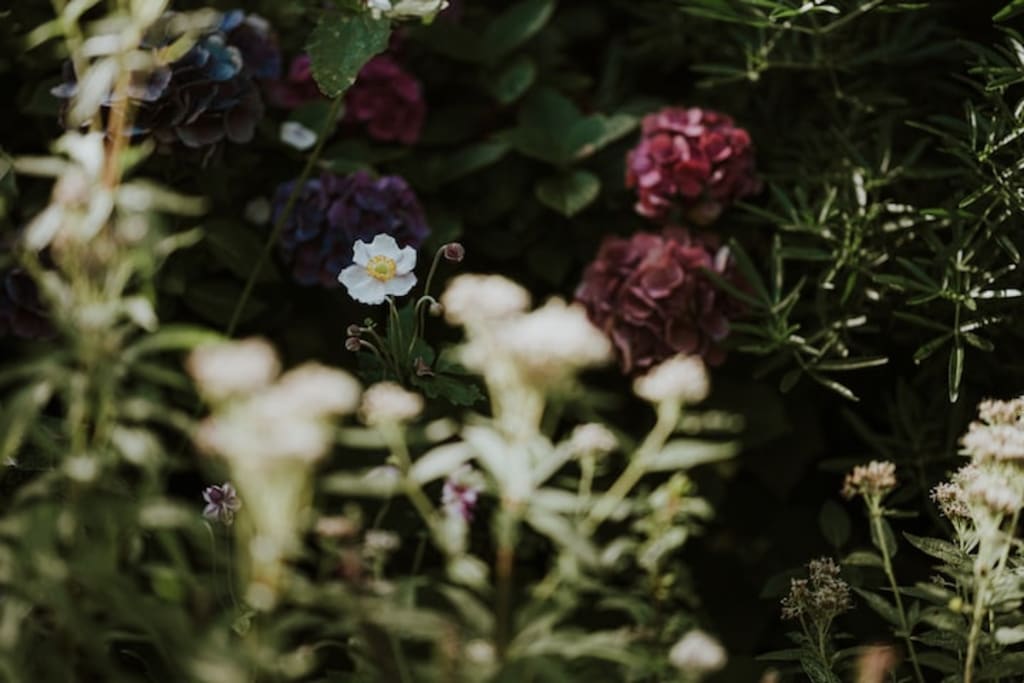CULTIVATING BEAUTY
THE ART OF GARDENING

Gardening, often referred to as the art of cultivating plants, is a deeply enriching and fulfilling pursuit that transcends mere horticulture. It is a profound connection with nature, a creative expression, and a source of boundless beauty. The act of tending to a garden offers numerous physical, mental, and spiritual benefits, fostering a sense of harmony and tranquility in our lives. In this essay, we will explore the multifaceted beauty of gardening, delving into the therapeutic qualities, the visual splendor it bestows, and its capacity to nurture life in its most vibrant form.
I. Therapeutic Oasis
A. Stress Relief
One of the most remarkable aspects of gardening is its therapeutic effect on the gardener. Engaging with nature, whether it be planting seeds, tending to growing plants, or simply immersing oneself in the garden's beauty, has been scientifically proven to reduce stress levels. The act of nurturing and observing the growth of plants instills a sense of purpose and tranquility, providing a welcomed respite from the demands of daily life.
B. Mindful Practice
Gardening encourages mindfulness, a state of focused awareness on the present moment. As gardeners cultivate their plants, they must be attuned to the needs of each individual species, fostering a deeper understanding of the natural world. This mindfulness practice not only enhances one's connection with nature but also promotes a sense of inner peace and contentment.
II. A Symphony of Colors and Textures
A. Visual Delight
Gardens are living canvases, where nature's palette is on full display. Vibrant blooms, lush foliage, and a diverse array of colors and textures create a visual feast for the senses. From the delicate petals of a rose to the lush greenery of a well-tended lawn, the beauty of a garden is a testament to the artistic prowess of Mother Nature and the skilled hands of the gardener.
B. Seasonal Splendor
The beauty of a garden evolves with the changing seasons, offering a dynamic display of nature's cycles. Spring brings forth a riot of color as blossoms emerge from their winter slumber. Summer ushers in a verdant lushness, while autumn paints the landscape with fiery hues of red, orange, and gold. Even in winter, the structural elegance of dormant plants adds a touch of magic to the garden.
III. Nurturing Life and Biodiversity
A. Ecosystem Support
Gardens serve as miniature ecosystems, providing vital support for local biodiversity. By carefully selecting a variety of plants, gardeners attract a diverse range of insects, birds, and other wildlife. This ecological diversity creates a thriving environment where each species plays a crucial role in maintaining a balanced ecosystem.
B. Sustainable Practices
Many gardeners embrace sustainable and eco-friendly practices, such as composting, rainwater harvesting, and using natural pest control methods. These efforts not only reduce the environmental impact of gardening but also contribute to the broader movement towards conservation and responsible stewardship of the Earth.
In the art of gardening, we find a profound celebration of life, a testament to the beauty and resilience of nature. It is a therapeutic sanctuary, a visual symphony, and a haven for biodiversity. Beyond the physical act of planting and nurturing, gardening is an invitation to connect with the very essence of existence. As we cultivate our gardens, we, in turn, cultivate our souls, fostering a deeper understanding of our place in the intricate web of life. In the beauty of gardening, we discover a source of endless inspiration, a reflection of the natural world's boundless creativity, and a reminder of the profound impact we can have in nurturing and preserving our planet.
For those of us interesting in diving into this wonderful journey, as a new gardener, it's a great idea to start with plants that are relatively easy to grow and require minimal maintenance. Here are some beginner-friendly flowers that are not only beautiful but also forgiving for those just starting out:
- Marigolds (Tagetes): Marigolds are known for their vibrant, cheerful blooms and are incredibly easy to grow. They thrive in various soil types and are relatively pest-resistant.
- Zinnias: Zinnias come in a wide range of colors and sizes, making them a popular choice for beginners. They're drought-tolerant and can flourish in both containers and garden beds.
- Sunflowers (Helianthus): Sunflowers are iconic for their large, sunny blooms. They're generally low-maintenance and are known to be great for attracting pollinators like bees.
- Cosmos: Cosmos produce delicate, daisy-like flowers that add a touch of elegance to any garden. They're drought-tolerant and bloom profusely, making them a lovely addition.
- Sweet Alyssum (Lobularia maritima): This low-growing flower is perfect for borders and edging. It has tiny, fragrant white or purple flowers and can withstand a range of conditions.
- Lavender (Lavandula): While not a traditional flower, lavender's aromatic purple spikes make it a wonderful addition to any garden. It's drought-tolerant and attracts pollinators.
Remember, each flower has its own specific growing requirements, so it's important to consider factors like sunlight, water, and soil type. Starting with a few of these beginner-friendly flowers will give you the confidence and experience to expand your garden in the future. Happy gardening!
About the Creator
Ray Hyp_ (Rayhyp___)
Reading takes you to a lot of different dimensions, far beyond your imaginations. So, read a lot to travel without any vehicle at all, in the comfort of your room and on your bed! WOW! With that said, happy reading...Hello everyone!





Comments (1)
Well written! Great job!